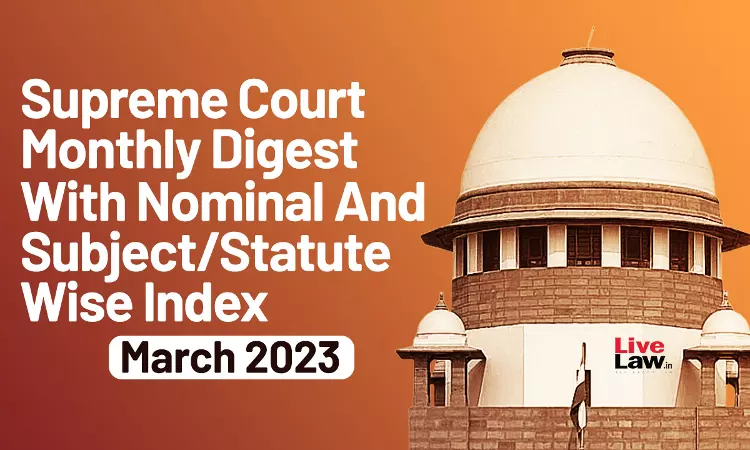- Home
- /
- Top Stories
- /
- Supreme Court Monthly Digest March...
Supreme Court Monthly Digest March 2023
LIVELAW NEWS NETWORK
11 April 2023 1:54 PM IST
SUBJECT WISE INDEXAccess to JusticeFundamental right of Access to Justice - Abolition of OAT does not violate right of access to justice as cases will be heard by High Court - The fundamental right of access to justice is no doubt a crucial and indispensable right under the Constitution of India. However, it cannot be interpreted to mean that every village, town, or city must house every forum...
Next Story



